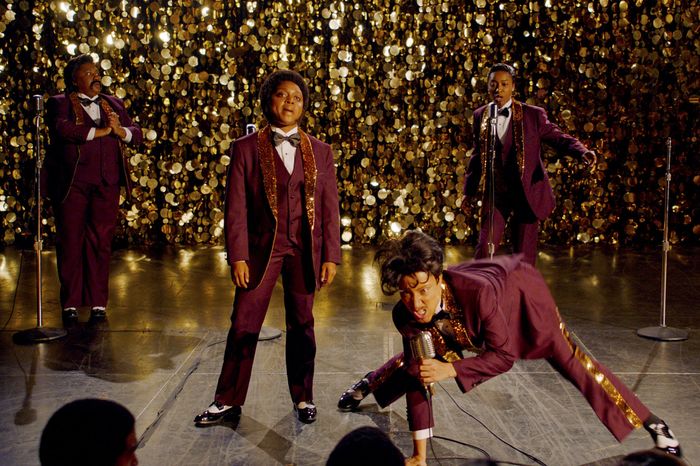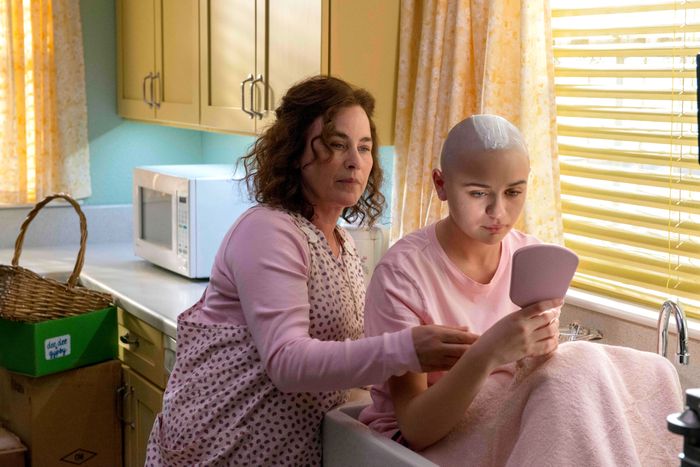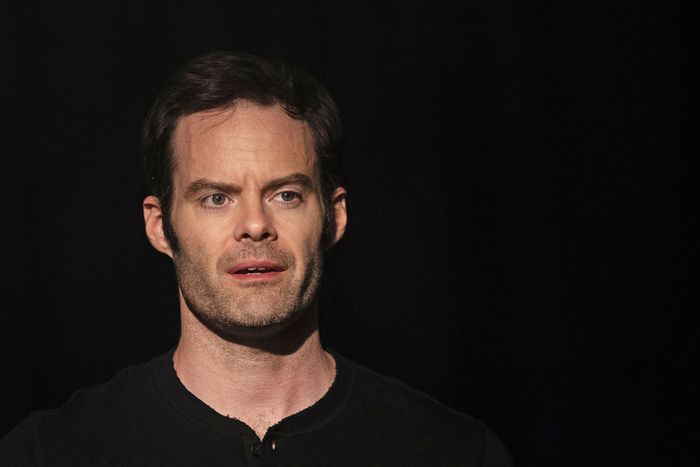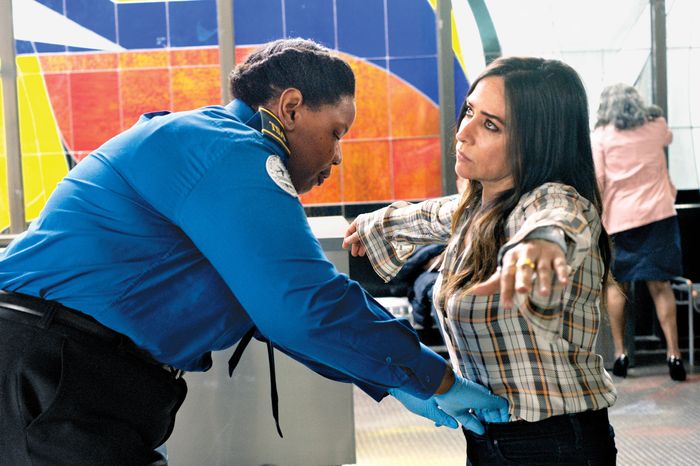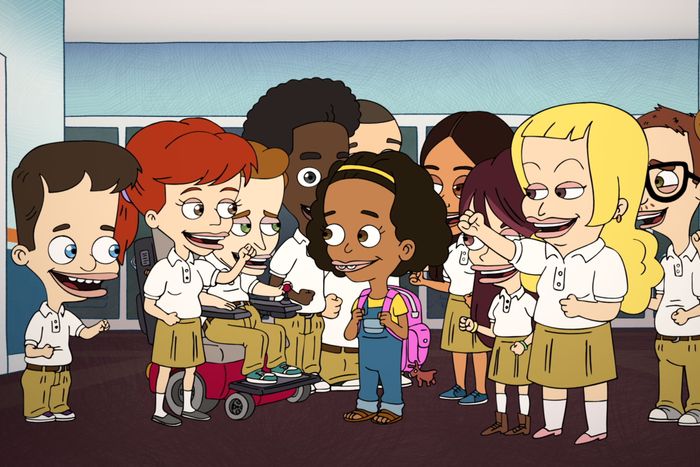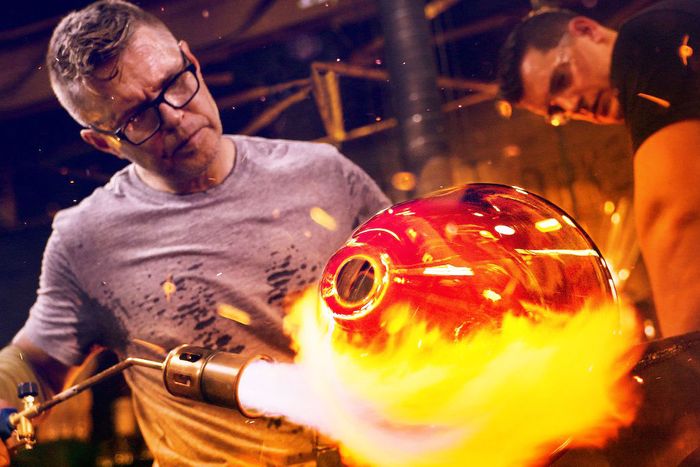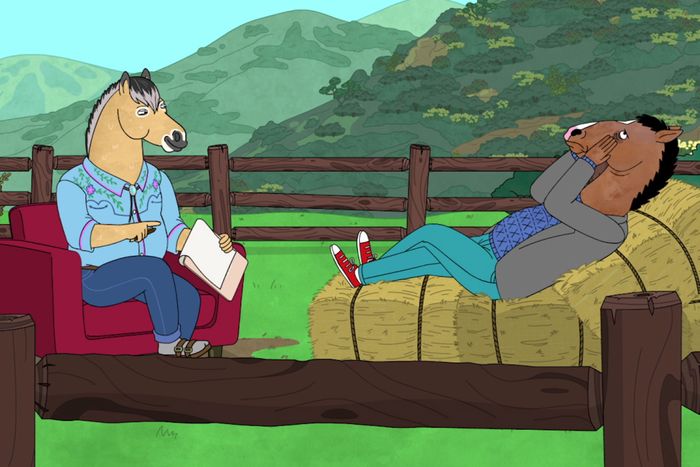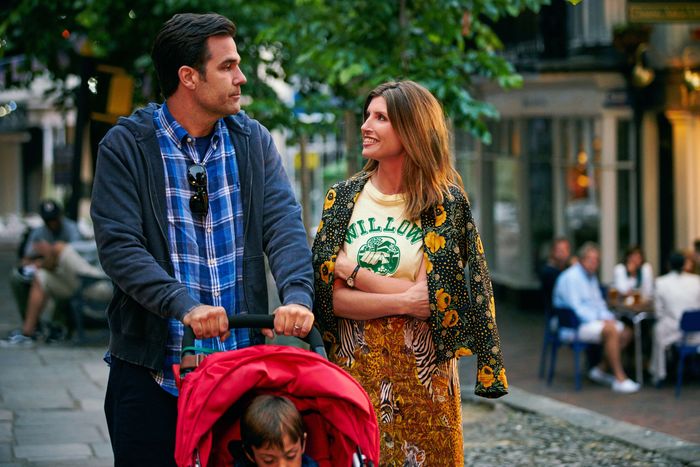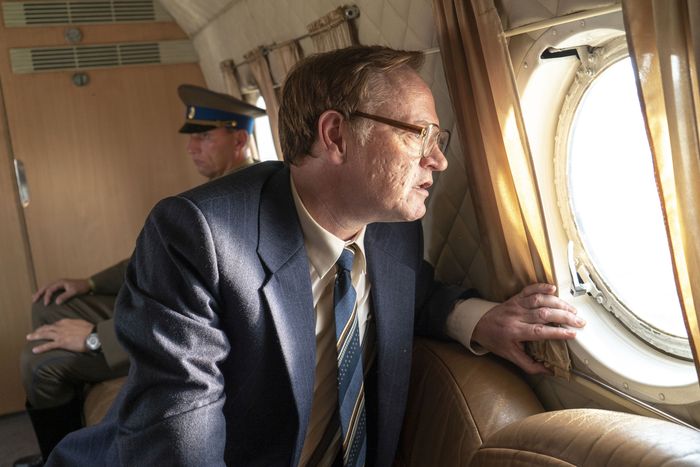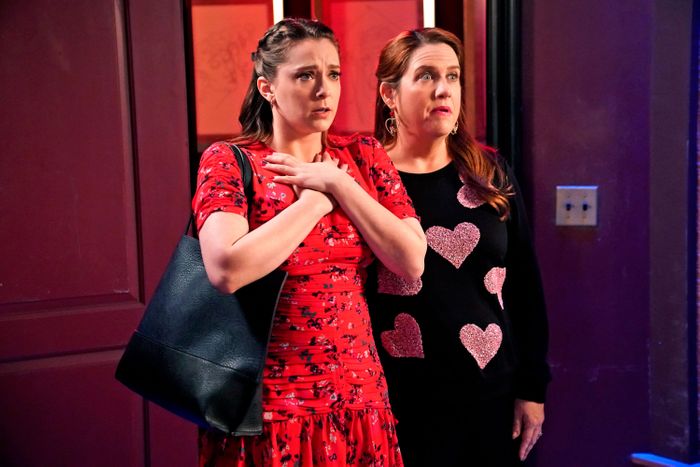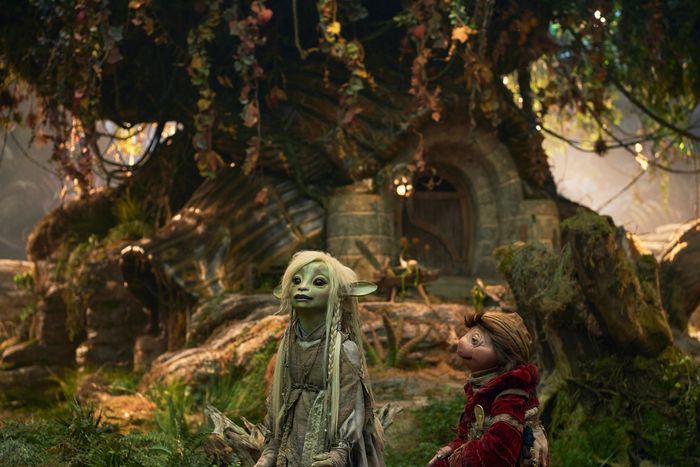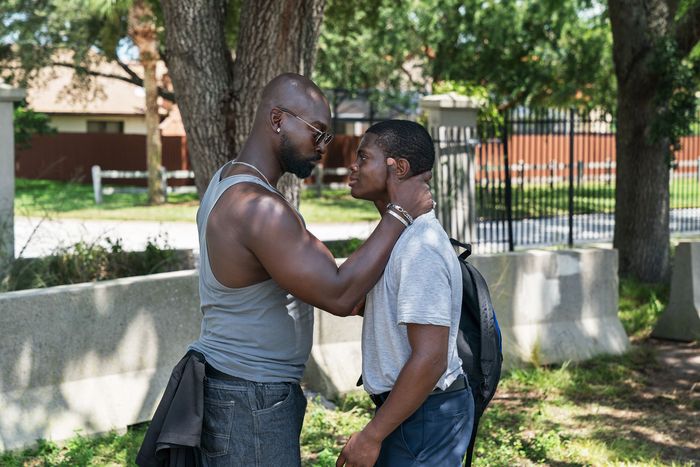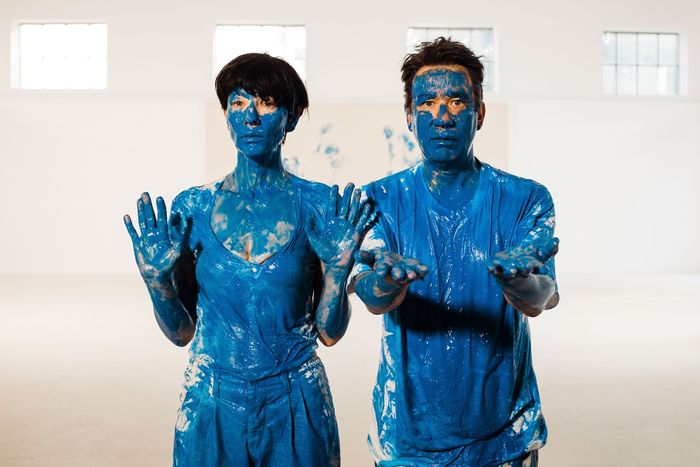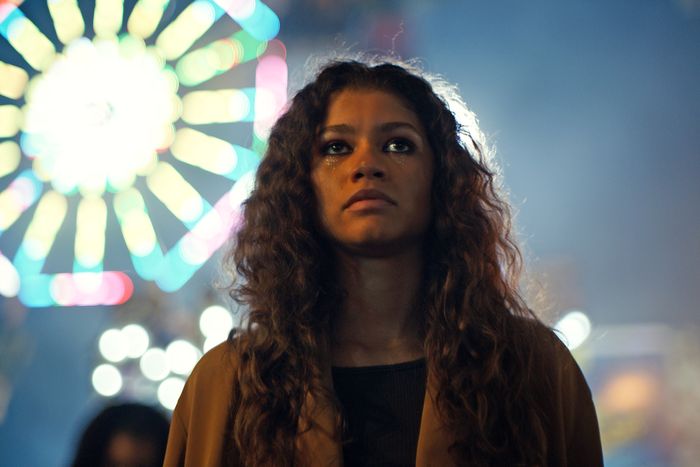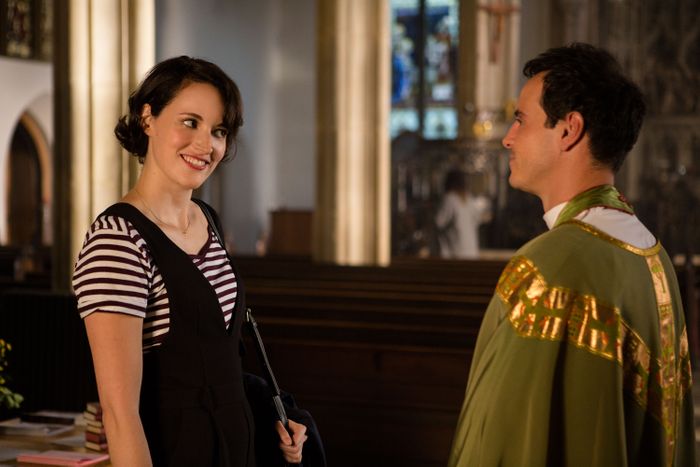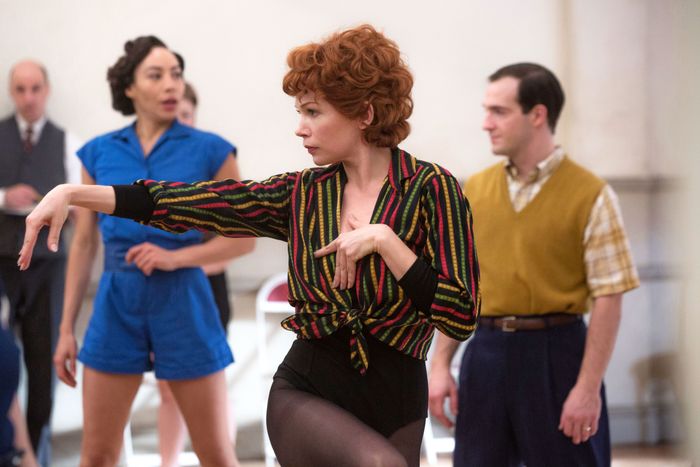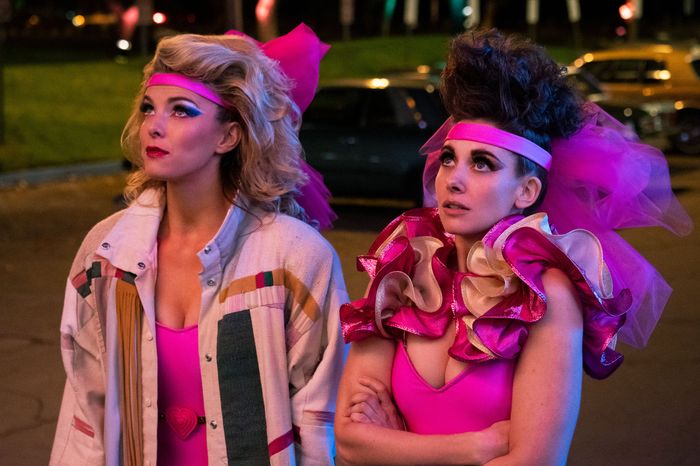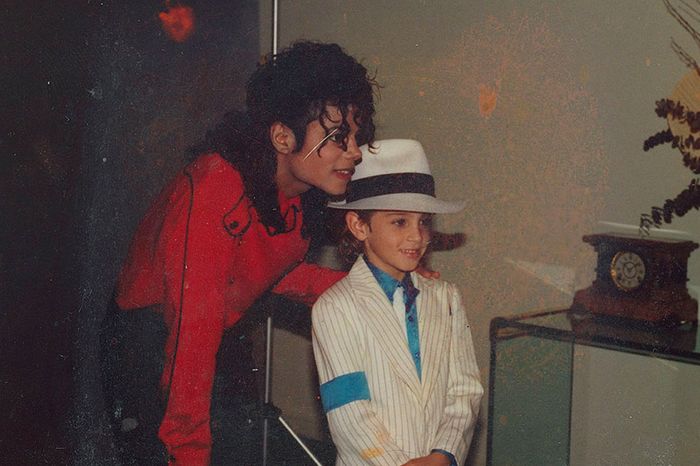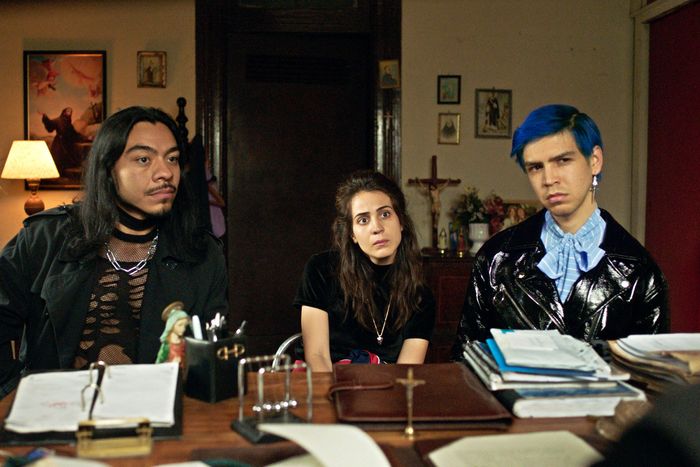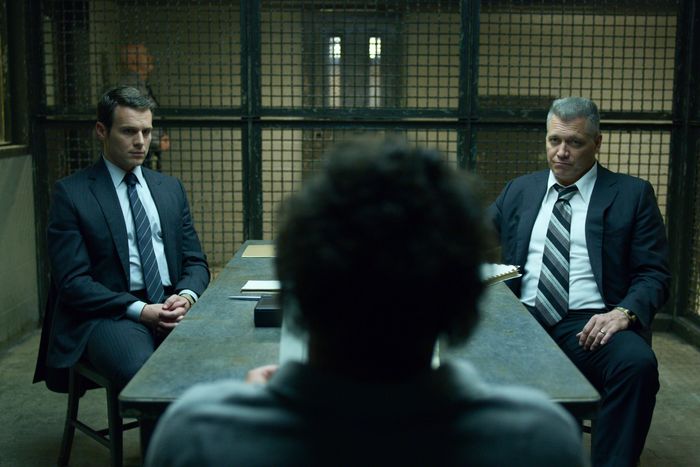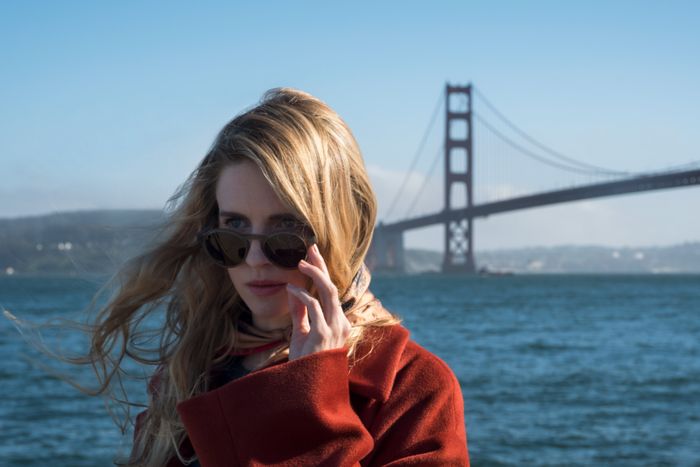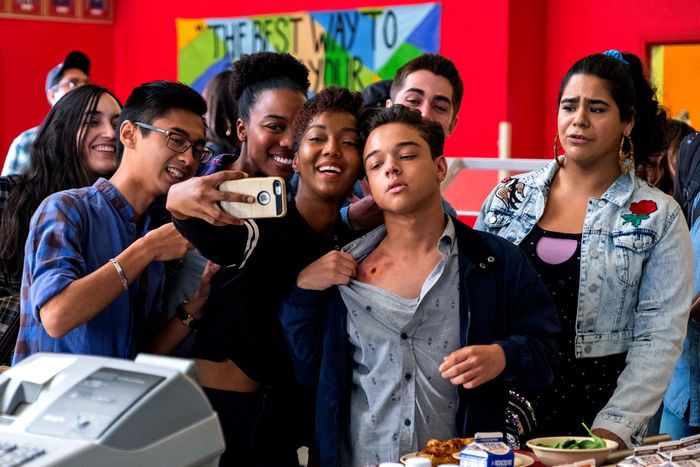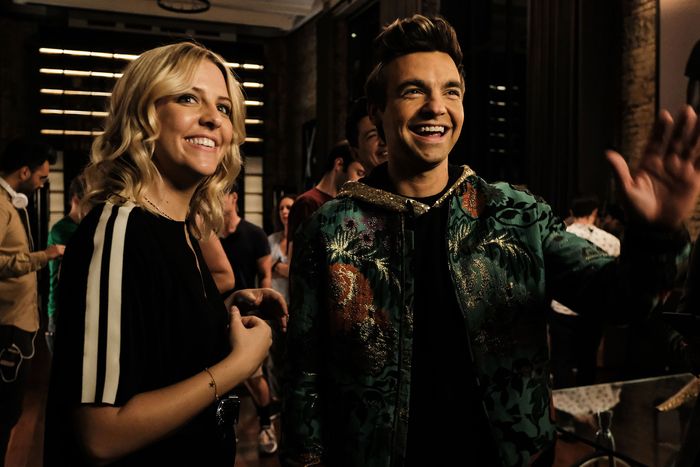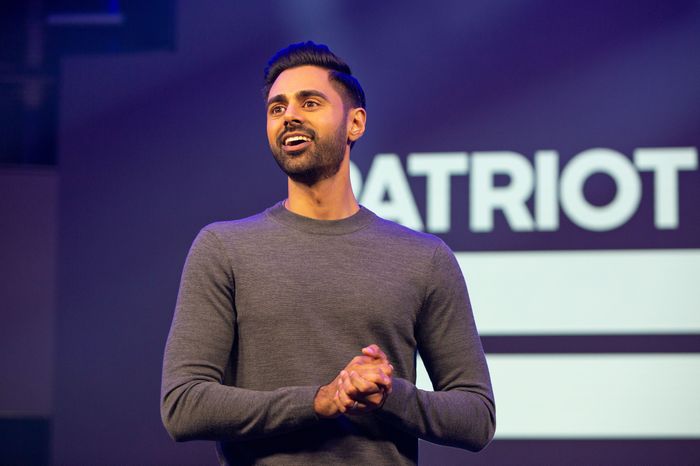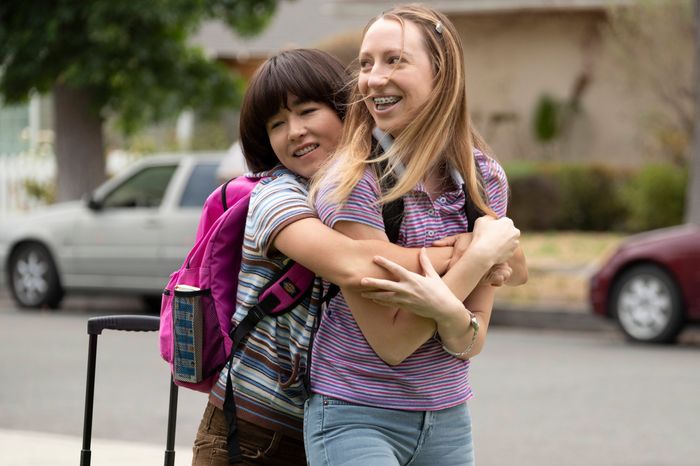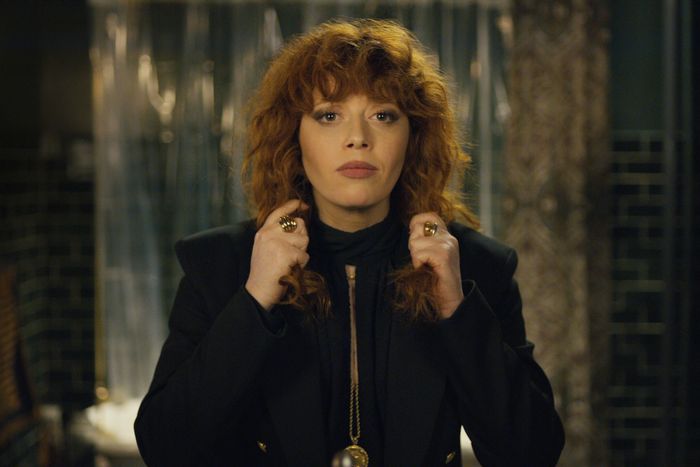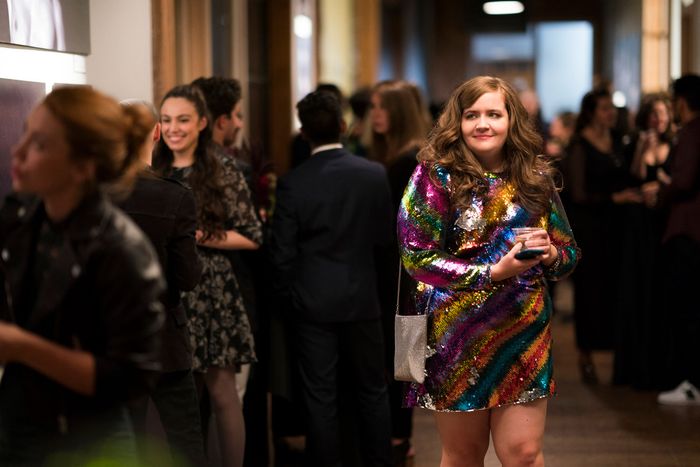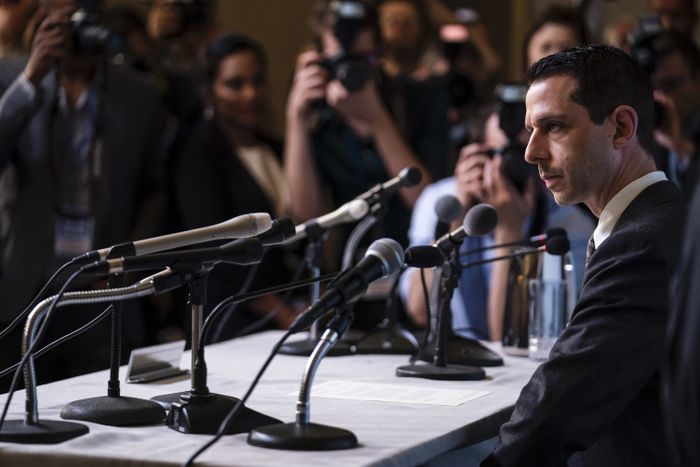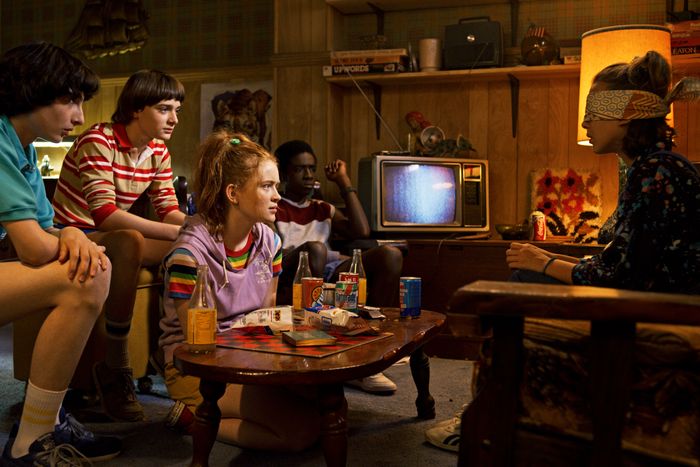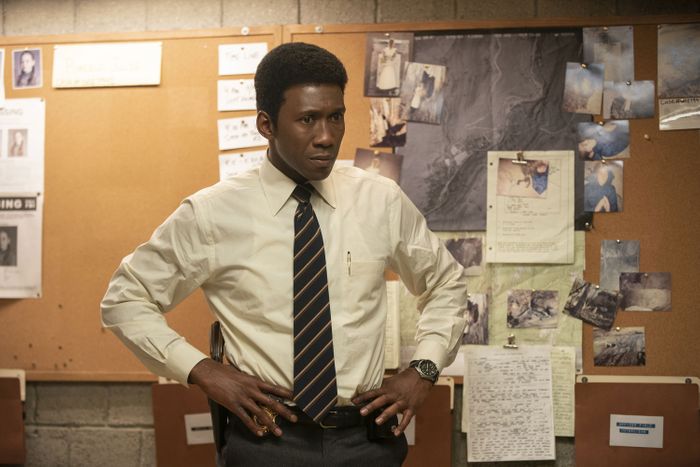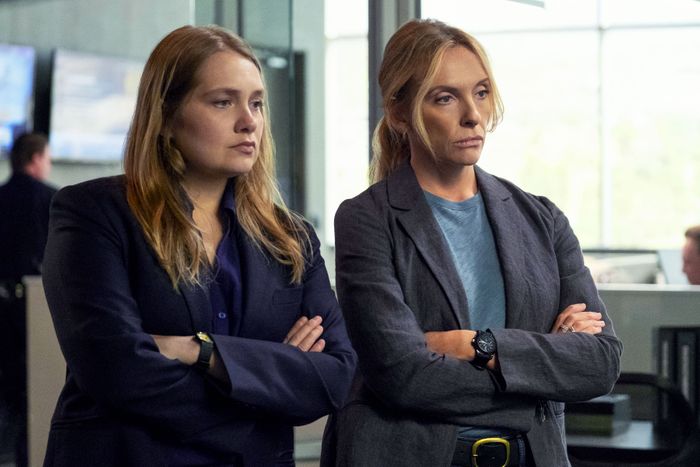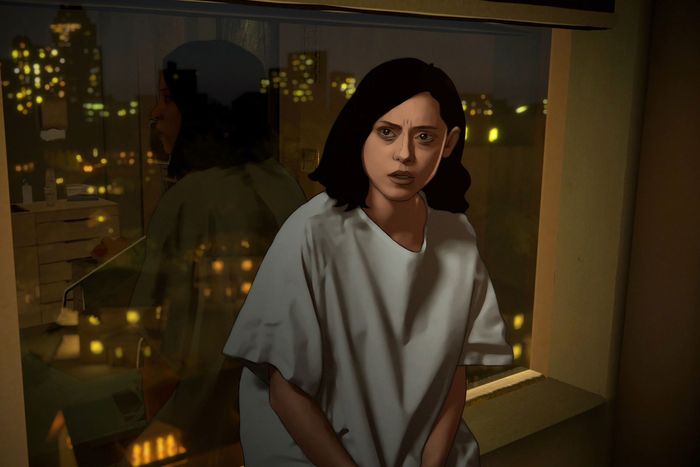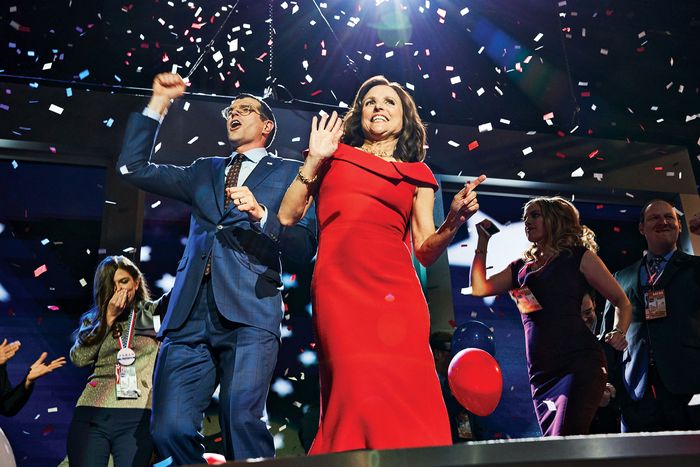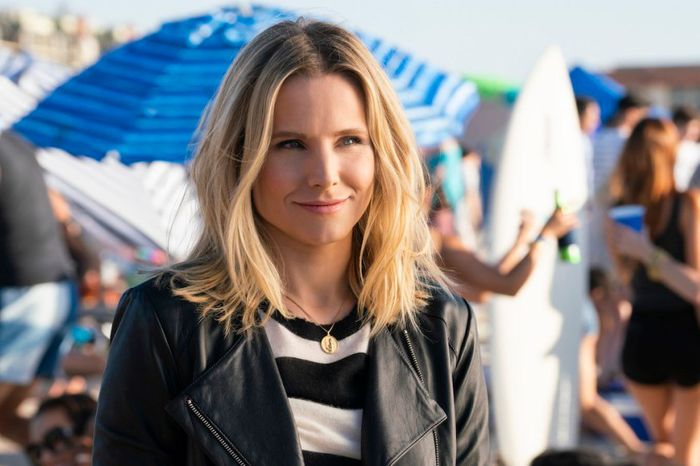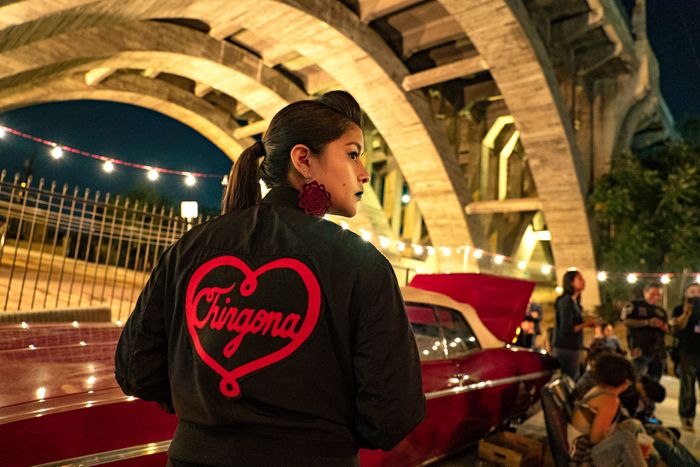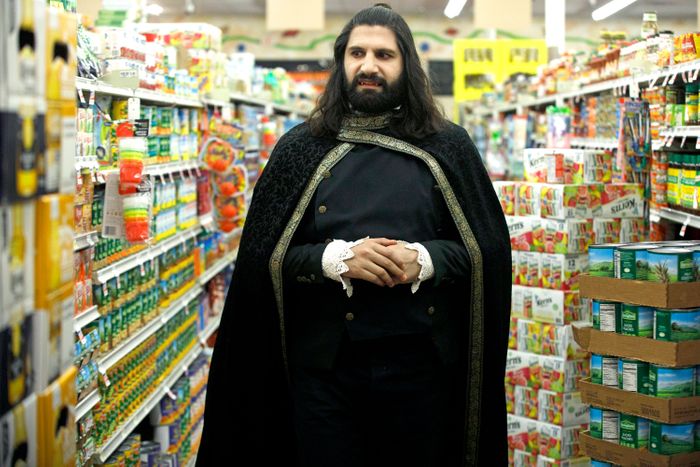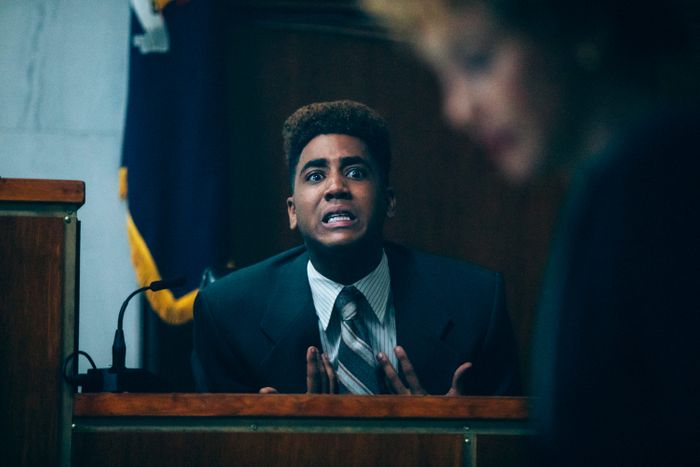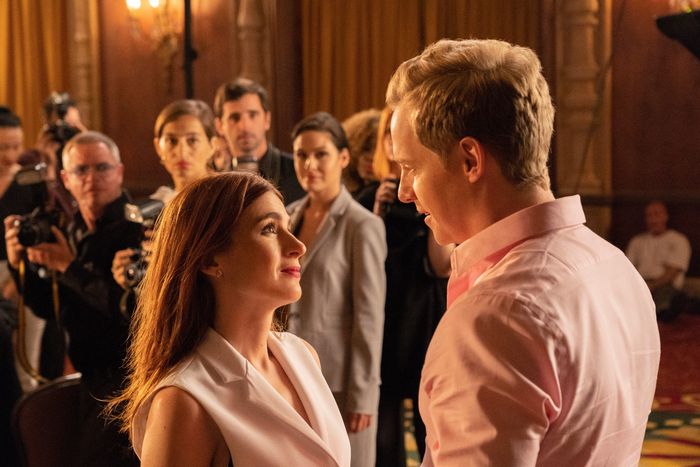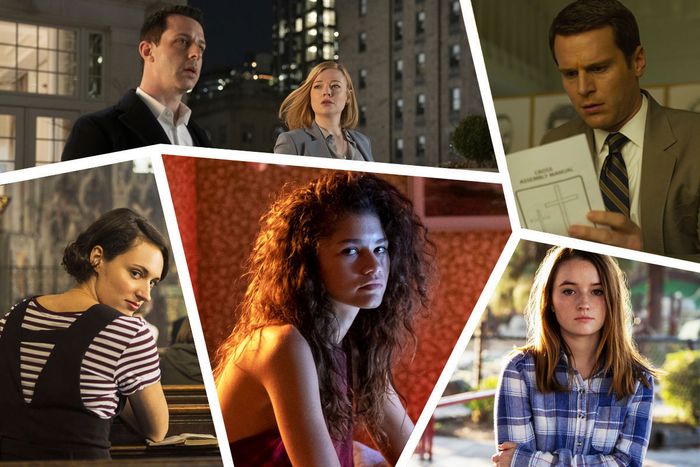
ThereÔÇÖs been a tremendous amount of great television since January, and so are VultureÔÇÖs picks for the best TV shows of 2019 (so far). A note about our selection methodology: Nonfiction and scripted series are both eligible, but because the focus is on this calendar year, seasons that debuted in 2018 were ruled out if more than half of the episodes debuted prior to January 1. For a complete list of the top 10 TV shows of 2019, sorted by critic,┬áread our year-end roundup here.
A Black Lady Sketch Show (HBO)
This HBO sketch-comedy series, created by┬áRobin Thede┬áand starring Thede and a core cast of hilarious black women, is both funny and long overdue. The sketches on the series are not just LOL-worthy, but surprising, escalating again and again to conclusions that viewers wonÔÇÖt see coming. But most important, the humor is completely steeped in the perspectives of black women, which makes this series not only a consistent hoot, but a groundbreaking one. ÔÇöJen Chaney
The Act (Hulu)
Even if you already know the story of Dee Dee Blanchard, her daughter Gypsy, and the lies perpetuated about GypsyÔÇÖs allegedly debilitating illness,┬áThe Act┬áis still engrossing television. If you donÔÇÖt, these ten episodes inspired by their story will make you say, ÔÇ£Are you┬ákidding┬áme?ÔÇØ almost as frequently as you did during┬áAbducted in Plain Sight┬áand┬áWild, Wild Country. As conceived by co-creators Nick Antosca and Michelle Dean (the latter of whom wrote┬áa BuzzFeed article about the Blanchards),┬áThe Act┬áis a tense, nuanced exploration of Munchausen syndrome by proxy. But what really makes this show a canÔÇÖt-miss is its consistently superb performances, most notably from its two leads, Patricia Arquette as Dee Dee, a honey-dripper of a con artist, and┬áJoey King┬áas Gypsy, whose girlish behavior serves as both disguise and a genuine reflection of her sheltered existence. This deeply codependent mother-daughter relationship is one of the more disturbing and memorable love stories weÔÇÖll see on TV this year.┬áÔÇöJC
Barry (HBO)
In its first season,┬áBarry┬áwas a great dramedy about a hit man attempting to leave the killing life in order to pursue acting. In its second,┬áBarry┬árose to exceptional heights. The writing, the directing (by the likes of Hiro Murai and the showÔÇÖs co-creator┬áBill Hader), and the acting across the board became even more layered, deliberate, and gripping. Yes, this is still a show about a hit man attempting to leave the killing life in order to pursue acting, but itÔÇÖs more broadly about whether itÔÇÖs possible for anyone to lead an honest life. P.S. ItÔÇÖs also darkly hilarious and the only show that features a Chechen gangster ÔÇö Anthony CarriganÔÇÖs glorious Noho Hank ÔÇö whoÔÇÖs more concerned with the quality of the table on which he plans to sort heroin than he is about the quality of the heroin he plans to sell.┬áÔÇöJC
Better Things (FX)
Pamela AdlonÔÇÖs series about a divorced single mother and actress posts its strongest season this year, doubling down on its storytelling style (which expands and explores individual moments) and going for broke in the direction (Adlon helms every episode in addition to co-writing, producing, and starring). There are at least a dozen sequences in this batch of 12 episodes that affirm the idea that┬ácinematic┬áisnÔÇÖt just a synonym for ÔÇ£we spent a lot of money.ÔÇØ Adlon has a rare ability to suggest the emotional interiors of characters even as she gives them their space.┬áÔÇöMatt Zoller Seitz
Big Mouth (Netflix)
This Netflix animated series about the young and horny has always focused on the sexual aspects of coming of age, and it continues to do that in its third season. But like middle schoolers transforming into their young adult selves, it also explores new avenues of storytelling: An entire episode functions as a biopic about Duke Ellington, while another involves the staging of a musical version of┬áthe 1994 erotic thriller┬áDisclosure. But it also demonstrates, in always hilarious and occasionally poignant fashion, that growing up means letting go of childish things (and, sometimes, childhood friends).┬áÔÇöJC
Blown Away (Netflix)
Yes, weÔÇÖve reached the point in Peak TV where thereÔÇÖs now a show about glassblowing. And wouldnÔÇÖt you know? ItÔÇÖs actually good! Ten contestants are given a different artistic challenge each episode and progressively eliminated until weÔÇÖre down to the final two. That structure is the same as every other reality competition show. But what distinguishes┬áBlown Away┬áis how seriously it takes its craft, and how eye-opening it is to watch the sweaty, complex, daunting process of turning glass fragments into sculpted artistic statements. This isnÔÇÖt just a contest; itÔÇÖs a portal into a form of creative expression that most people have never seen up close. ÔÇöJC
BoJack Horseman (Netflix)
The first half of the final season unfolds exactly as you would hope. Ex-sitcom star BoJack, voiced by Will Arnett, is working his way through rehab and still trying to be a better, um, horse-man. All of the characters this season ÔÇö Diane (Alison Brie), Princess Carolyn (Amy Sedaris), even clueless Todd (Aaron Paul) ÔÇö are learning what it means to truly give oneself to something bigger. In classic┬áBoJack┬áfashion, theyÔÇÖre all doing it on a show that takes┬áastute jabs at the Hollywoo establishment┬áand drops clever Easter eggs into practically every frame. BoJack & Co. may still be seeking self-improvement. But┬áBoJack Horseman┬áremains as good as TV gets.┬áÔÇöJC
Catastrophe (Amazon)
A moving and unexpectedly cosmic finale made the fourth season of┬áCatastrophe┬áthe best since its first. This consistently surprising romantic comedy from the creative team of┬áRob Delaney┬áand┬áSharon Horgan┬áshowed the main characters and their immediate circle coming to terms with age, compromise, and the finiteness of life, and figuring out how to create a bubble of contentment within a chaotic world. The season wouldÔÇÖve been moving even if it hadnÔÇÖt┬ágiven co-star Carrie Fisher a formal send-off, but the touching and raucously funny memorial episode (doubling as the series ender) made the whole thing feel cathartic. ÔÇöMZS
Chernobyl (HBO)
WhatÔÇÖs the worst that can happen? This. Writer Craig Mazin and director Johan Rencks subject the 1986 nuclear disaster at Chernobyl to a long-deferred political autopsy, showing how an incompetent, fearful, ass-covering bureaucracy can make an already unthinkably awful situation a hundred times worse. Combining horror, black comedy, and political satire, and tying it all together with a respectful, at times funereal tone, this is one of the feel-bad events of the TV year, and strangely cathartic for that reason. ÔÇöMZS
Crazy Ex-Girlfriend (The CW)
The best way to stick the landing when youÔÇÖre finishing a long-running TV series is to craft an ending that feels true to the showÔÇÖs best self. ThatÔÇÖs what┬áCrazy Ex-Girlfriend┬ástar and creator Rachel Bloom and co-creator Aline Brosh McKenna did in this fourth and final season, bringing all of their characters into direct confrontation with their desires for the future and the consequences of their past choices, and refusing to wrap anything up in a neat little box. The end of RebeccaÔÇÖs odyssey was particularly resonant because it paralleled BloomÔÇÖs own story: seeking introspection and catharsis through art, without making any unrealistic promises about the quality of the art that the starÔÇÖs alter ego might eventually deliver. The more you think about that final scene, the more reminiscent it is of┬áMad Men, which likewise ended on┬áa hopeful note┬áwithout overpromising in the personal-growth department. ÔÇöMZS
The Dark Crystal: Age of Resistance (Netflix)
Returning to the heyday of Jim Henson and Frank OzÔÇÖs creative peak, this lavish Netflix series is a prequel to the 1982 puppet fantasy┬áDark Crystal, which was deemed too dark for popular taste. As it happens, popular taste eventually caught up: Not only did the movie find a loyal cult audience, it helped pave the way for wildly popular, rather dark fantasies like Peter JacksonÔÇÖs Tolkien adaptations and┬áGame of Thrones. Directed by Louis Leterrier (The Incredible Hulk,┬áClash of the Titans), this series, set on a planet far away, boasts extraordinary old-school puppeteering and practical effects, treating every scene and image as a chance to dazzle the eye. ÔÇöMZS
David Makes Man (OWN)
Tarell Alvin McCraney wrote the play that inspired the movie┬áMoonlight, so itÔÇÖs no surprise that the OWN drama he created is reminiscent of that Oscar-winning film. Set in Miami and focused on David (Akili McDowell), a private-school student who lives in the projects, the series often departs into hazy, waking-dream-like digressions that reflect DavidÔÇÖs exhausted mental state. But itÔÇÖs just as committed to realistically depicting the pressures that come with being young, gifted, and black in contemporary America.┬áDavid Makes┬áMan features strong performances from up-and-coming actors, McDowell included. The way it depicts the struggles of black kids on both ends of the economic spectrum, telling their stories from the inside out, makes it not just good television, but vital television.┬áÔÇöJC
Diagnosis (Netflix)
Medical shows are one of the oldest TV genres. But┬áDiagnosis, a docuseries based on the┬áNew York Times Magazine┬ácolumn by Dr. Lisa Sanders, takes stories of disease, doctors, and cures into new territory that reflects an increasingly collaborative approach toward medicine. Each episode focuses on a patient dealing with a rare affliction that medical professionals have struggled to identify or effectively treat. Sanders takes on each case and uses her platform to crowdsource a diagnosis, relying not only on doctors and health experts, but also others who have experienced similar symptoms. The result is a series thatÔÇÖs uplifting without being too treacly, and one that highlights the shortcomings of modern, for-profit medicine as well as the idea that sometimes it takes a village to treat an illness.┬áÔÇöJC
Documentary Now! (IFC)
The latest season of this documentary parody series was three years in the making, its production complicated by the busy schedules of its founding co-stars/co-creators, but these irritations seemingly spurred the storytellers to new heights of sophistication and invention. Juicy major roles went to heavy-hitting guest stars, including Cate Blanchett, Michael Keaton, Owen Wilson, Natasha Lyonne, and Michael C. Hall. And the scripts went all-in on tip-of-the-iceberg characterizations (implying that the subjects depicted in the films were all much deeper and more troubled than the filmmakersÔÇÖ preconceptions could capture) and metafictional subtext. Some of the latter amounted to a philosophical critique of nonfiction filmmaking and its practitioners ÔÇö the sort of thing youÔÇÖd expect to hear during a film festival Q&A, but never on a series that appears on commercial cable.┬áÔÇöMZS
Euphoria (HBO)
Exuberantly embracing the idea that too much can be just right, this teen melodrama from Sam Levinson is set in a Southern California bedroom community, but tells the story in a fantastically exaggerated, expressionistic style, storyboarding all the action to within an inch of its life, and filming mainly on constructed sets rather than real locations, the better to permit acrobatic camera moves and wild lighting effects. Essentially Paul Thomas AndersonÔÇÖs┬áMy So-Called Life, if you can imagine such a thing,┬áEuphoria┬áis completely over the top yet sincere in the way that teenagers themselves are. There are no small moments. Even the grace notes are epic. ÔÇöMZS
Fleabag (Amazon)
Absence makes the heart grow fonder, and it has certainly grown justifiably fonder for this British series created by the bundle of side-eyed brilliance that is its star, Phoebe Waller-Bridge. When the┬áfirst season┬áof this character study dropped on Amazon back in 2016, it received positive notices but not a lot of buzz. But the second season, still full of Waller-BridgeÔÇÖs signature fourth-wall-shattering commentary, has become one of the hottest topics on social media, at least among the TV-watching cognoscenti. Waller-Bridge is as sharp as ever, and the storytelling is even more focused, particularly with regard to a┬ábudding romance┬ábetween Fleabag and┬áa hot priest played by Andrew Scott┬áthat has forced Twitter to┬ácollectively and repeatedly fan itself in appreciation. ItÔÇÖs six episodes of perfection that youÔÇÖll want to watch all over again the second you finish.┬áÔÇöJC
Fosse/Verdon (FX)
This series about the creative and romantic relationship between director-choreographer Bob Fosse (Sam Rockwell) and dancer-choreographer-actress Gwen Verdon (Michelle Williams) was catnip to theater-history obsessives, marinating in marginalia and dropping references and names so generously that itÔÇÖs hard to imagine a casual viewer stumbling upon it and becoming immersed. Yet the specificity of it, particularly in showing the minute details of collaboration, is a big part of what made it feel unique. That and the mosaic storytelling, which focused on particular periods of weeks and months in the coupleÔÇÖs life and didnÔÇÖt try to wrap things up with any grand statement. ItÔÇÖs far from perfect ÔÇö Rockwell is a bit too reticent and internal, perhaps, and it probably erred by focusing on FosseÔÇÖs by now stereotypical ÔÇ£bad geniusÔÇØ behavior in the first couple of episodes, when Verdon ultimately defined the character of the entire piece. But the more you sit with this one, the more substantial it feels.┬áÔÇöMZS
GLOW (Netflix)
The third season of the female wrestling dramedy shifts the action from L.A. to┬áLas Vegas, where the Gorgeous Ladies of Wrestling are staging a live show several nights a week. Another show working in this very specific milieu ÔÇö pro-wrestling in Vegas in the ÔÇÖ80s ÔÇö would have leaned hard into the cheesy, neon, fluorescent camp of that setting. But while┬áGLOW┬ástill has more than its share of big hair, it goes a more satisfying and subtle route, capturing the claustrophobic state of limbo that sets in when youÔÇÖre living and working in a hotel on the Strip.┬áGLOW┬ágives more of the members of its ensemble cast time to shine, most notably┬áGayle RankinÔÇÖs Sheila the She Wolf. But it also continues to dissect the relationship between Ruth (Alison Brie) and Debbie (Betty Gilpin), the best friends turned rivals turned colleagues who continue to look to each other for reaffirmation. Separately, Brie and Gilpin are fantastic. Together, theyÔÇÖre dynamite.┬áÔÇöJC
Leaving Neverland (HBO) 
It almost feels disrespectful to consider this two-part, four-hour documentary about two sexual-abuse survivors in the context of lighter entertainment.┬áDirector Dan ReedÔÇÖs film┬áconcentrates on two adult men who say they were┬ágroomed for underage sex abuse by Michael Jackson, whose behavior was the subject of┬átwo prior civil actions. But the documentary is ultimately less interested in bringing down a legend than in bearing witness to Wade Robson and James Safechuck, men who still carry the scars of a profoundly damaging experience they say they suffered at the hands of Jackson. The bulk of┬áLeaving NeverlandÔÇÖs running time is dominated by close-ups of their faces, and by the sounds of their voices, which seem to come from a lightless place deep in their psyches. ÔÇöMZS
Los Espookys (HBO)
This half-hour comedy, co-created by┬áFred Armisen,┬áSNL┬áwriter┬áJulio Torres,┬áand comedian┬áAna Fabrega, plays by its own set of idiosyncratic rules. Set in Mexico and L.A.,┬áit uses subtitles at all times: English when someone is speaking Spanish, and Spanish when someone is speaking English. It follows a ÔÇ£horror groupÔÇØ who stage scary situations ÔÇö sea-monster invasions, exorcisms, you know, the usual ÔÇö in exchange for money. ItÔÇÖs the kind of show where a line like ÔÇ£I just met a parasitic demon that lives inside of me. But IÔÇÖm free now. WhatÔÇÖs up?ÔÇØ is spoken with a straight face and is entirely accurate. ItÔÇÖs a very special, wonderful kind of weird. ÔÇöJC
Mindhunter (Netflix)
The second season of David FincherÔÇÖs deep dive into serial-killer psychology isnÔÇÖt great because of its┬ádead-on portraits of actual famous murderers, although that certainly doesnÔÇÖt hurt. The conversations that FBI agent protagonists Holden Ford (Jonathan Groff) and Bill Tench (Holt McCallany) have with David ÔÇ£Son of SamÔÇØ Berkowitz (Oliver Cooper) and, especially,┬áCharles Manson (a superb Damon Herriman)┬áare fascinating and unnerving to watch. But like the rest of the series, they tell us something about the men who, along with their colleague, Wendy Carr (Anna Torv), are trying to understand what makes homicidal maniacs tick without considering that their internal clocks are built using similar machinery. On the surface, this season of┬áMindhunter┬ábecomes increasingly focused on the famous┬áAtlanta child murders┬áthat happened in the late ÔÇÖ70s and early ÔÇÖ80s. But really itÔÇÖs about how, in different ways, every human being seeks attention and often gains it the more lurid their story becomes.┬áÔÇöJC
The OA: Part II (Netflix)
It took more than two years for the second season of┬áThe OA, the spiritual mystery-thriller puzzle box of a Netflix drama from Brit Marling and Zal Batmanglij, to finally arrive. The result is an┬áeven more complex, sprawling, self-serious journey through multiple dimensions. ItÔÇÖs also a more confusing one that made my eyes roll on more than one occasion. So why does this show make the cut, then? Because of its ambition, its fierce commitment to its extremely particular artistic sensibility, and┬áa twist ending┬áthat made me immediately curious to see a┬áPart III.┬áÔÇöJC
On My Block (Netflix)
Set in the fictional Los Angeles neighborhood of Freeridge, and co-created by Lauren Iungerich (Awkward) and the screenwriting team of┬áEddie Gonzalez and Jeremy Haft┬á(All Eyez on Me), this teen-driven series favors broad comedy built around shenanigans. But it also manages to swing between that mode and the crime thriller, the telenovela, and social satire, sometimes within the space of a few minutes. Even when the viewer gets whiplash, itÔÇÖs impossible not to appreciate the multitudes that this modest show contains. ÔÇöMZS
The Other Two (Comedy Central)
Straight out of the gate, itÔÇÖs obvious that┬áThe Other Two┬áhas a strong sense of itself even if its two main characters, Cary (Drew Tarver) and Brooke (Hel├®ne York), the siblings of on-the-rise pop singer ChaseDreams (Case Walker), have no clue what theyÔÇÖre doing. As conceived by former┬áSNLwriters┬áChris Kelly and Sarah Schneider, this is a cutting and giddy satire of showbiz b.s., but one with heart and relatable characters who, in the midst of paparazzi chaos, are still rooting for each other.┬áÔÇöJC
Patriot Act with Hasan Minhaj (Netflix)
Co-created by its star, Hasan Minhaj, and head writer Prashanth Venkataramanujam,┬áPatriot Act┬áis one of the few political-commentary series to come along since┬áLast Week Tonight with John Oliver┬áthat adds something fresh and new to the format. ItÔÇÖs distinguished not only by its perspective (that of an Indian-American fluent in Hindi and Urdu) but by its emphasis on international news, which puts all other American current events-oriented series ÔÇö including the non-comedic ones ÔÇö to shame. This yearÔÇÖs batch of episodes has included a look at┬áhow Brazilian President Bolsonaro is threatening the Amazon and its indigenous people;┬áthe tension between democracy and authoritarianism in Sudan;┬áthe globalization of the National Rifle Association; and┬áthe way geographical and class biases affect who gets internet access in the United States. ÔÇöMZS
PEN15 (Hulu)
The pitch for this Hulu comedy admittedly sounds sketchy: ItÔÇÖs a coming-of-age story in which two women in their 30s play middle-schoolers. But┬áMaya Erskine and Anna Konkle┬áare so convincing as their tween alter egos that┬áPEN15┬ájust works. ItÔÇÖs a portrait of young female friendship thatÔÇÖs poignant and crude, hilarious and cringey, brutally honest and gloriously nostalgic for┬áthe AIM-infused days of the year 2000.┬áÔÇöJC
Russian Doll (Netflix)
Watching a woman┬árepeatedly die and come back to life┬áat the same birthday party could have been an exercise in redundancy. But┬áRussian DollÔÇÖs version of hitting repeat is anything but dull. With the peppery Natasha Lyonne as its star, a compelling existential mystery at its center, and a subtle approach to exploring the psychological burdens that keep human beings anchored in the same place,┬áRussian Doll┬ádeservedly emerged as one of the yearÔÇÖs TV talkers. And it did all of that with a distinctly female eye, with every episode directed by a woman. Metaphorically,┬áRussian Dollgoes backward, again and again, and does it in heels.┬áÔÇöJC
Shrill (Hulu)
This Hulu series about body positivity is a smartly written, funny, and wonderfully observant comedy thatÔÇÖs also the perfect vehicle for star┬áAidy Bryant. As Annie, Bryant ÔÇö who co-created the series alongside Alexandra Rushfield and Lindy West, author of the book that inspired it ÔÇö is sometimes insecure, sometimes┬á├£ber-confident, and always recognizably human. Not only does┬áShrill┬áflip the bird at the idea that being fat should be a source of shame,┬áparticularly in its strongest episode, ÔÇ£Pool,ÔÇØ┬áit also treats all of its characters as flawed, complicated individuals deserving of empathy. Its episodes are a series of streaming-TV reminders that every person is a novel whose cover only tells a tiny slice of their story.┬áÔÇöJC
Succession (HBO)
The internetÔÇÖs favorite TV show earned that title for all the right reasons. Building on its strong first season, the second dug even more deeply into the dynamics within the Roy family while cranking up the tension surrounding their companyÔÇÖs future, turning what was a dark dramedy into a power-ranking-worthy, must-watch portrait of siblings with deep daddy issues. The season was brilliantly acted by its primary cast, as well as recurring new players (we salute you, Holly Hunter), it delivered a simultaneously shocking and slyly foreshadowed┬áfinale twist, and it gave us countless memes to savor. You want us to fuck off, Logan Roy? Never, not when this wealthy trainwreck makes it so satisfying to rubberneck.┬áÔÇöJC
Stranger Things (Netflix)
If season two of NetflixÔÇÖs blockbuster ÔÇÖ80s nostalgia fantasy didnÔÇÖt settle the question of whether it should have quit while it was ahead, season three went a long way toward justifying the decision to keep things going. All the major players got new threads to play out, and while some of these were forced and awkward (the sexual tension between Joyce and Hopper only worked as a setup for the cliffhanger ending), others were sensationally effective (BillyÔÇÖs descent into┬áJohn CarpenterÔÇôlike demonic evil) or amusing because of their sheer goofiness (DustinÔÇÖs under-pressure┬áNeverending Storyduet with the girlfriend that you mightÔÇÖve assumed was nonexistent). The Duffer brothers also tweaked the milieu in ways that resonated with the present, introducing a Russian conspiracy into a show already thick with vintage Cold War tensions; adding a Trump-like mayor (Cary Elwes) under the RedsÔÇÖ thumbs; and stirring in┬ásurprisingly effective nostalgia for malls, which in the Reagan era were portrayed as bland destroyers of downtowns and mom-and-pop stores but now seem like lovely artifacts of a time when people willingly left their homes to physically be part of a community, however provisional, rather than sitting on their couches all day and night, ordering stuff on Amazon and watching, er, Netflix. ÔÇöMZS
Tidying Up With Marie Kondo (Netflix)
Who knew that watching random people clean their houses could be so entertaining and moving?┬áTidying Up┬áis both, partly because┬ábest-selling author Marie Kondo┬áis such a charming and calming presence, but also because so many people struggle with curbing clutter and keeping their homes straight.┬áTidying Up┬áshows a potential path toward overcoming the piles without setting unrealistic expectations. It also caused people all over the world to start┬áfolding their clothes into perfect, dresser-drawer-ready rectangles, and for that alone it is obviously Emmy-worthy.┬áÔÇöJC
True Detective (HBO)
After a first season that was equally spellbinding, ridiculous, problematic, and agreeably demented, Nic PizzolattoÔÇÖs anthology series very nearly self-destructed in season twoÔÇÖs fit of purplish neo-noir self-indulgence. The third season, starring Mahershala Ali and Stephen Dorff as detectives trying to solve the murder of one child and the disappearance of another, didnÔÇÖt just rescue the franchise; it suggested a sensitivity to the boundaries between fiction and mythology,┬átrue crime and exploitation, that previous stories had barely hinted at.┬áÔÇöMZS
Unbelievable (Netflix)
This is quite simply┬áone of the decadeÔÇÖs best crime series, one informed by the care and nuance it brings to its portrayal of female victims and the female detectives who play a vital role in tracking down a serial rapist. Based on the true story brought to light by investigative reporting from ProPublica and the Marshall Project,┬áUnbelievable┬áis distinguished from similar series by the gender-informed attention to detail that creator┬áSusannah Grantbrings to this study of lapses in the criminal justice system. Also, the performances are extraordinary. Kaitlyn Dever will break your heart as Marie, the rape victim whose recall is questioned by careless cops. And as detectives who team up to get to the bottom of several assualt cases,┬áMerritt Wever┬áand Toni Collette give us the┬áTrue Detective┬áwe always deserved. ÔÇöJC
Undone (Amazon)
Kate Purdy and Raphael Bob-Waksberg, known for their work on┬áBoJack Horseman, are behind this fascinating animated series with an entirely different style and sensibility. Created using live action-esque rotoscope animation,┬áUndone┬áfollows Alma (Rosa Salazar) whose sense of reality gets fractured after a car accident. Suddenly, she begins seeing her late father (Bob Odenkirk) who wants to teach her how to bend the rules of space and time to figure out why he actually died years earlier, in what was believed to be a car wreck. The freedom afforded by the genre enables viewers to truly live inside RosaÔÇÖs head while also asking questions about whatÔÇÖs going on inside it. Is Rosa mentally ill or is she finally seeing things with true clarity? You want to keep watching to find out. ÔÇöJC
Veep (HBO)
This brutally funny HBO series has functioned, sometimes accidentally, as a kind of political meteorologist. In ways that have been both amusing and unsettling, it has often known which way the wind would blow in D.C. before the first breezes could even be felt on Capitol Hill. In its seventh and final season,┬áVeep┬ástill managed to unwittingly sync with reality. (Remember when people at a Trump rally yelled that we should kill immigrants┬ájust days after the same thing was shouted┬áat a rally for presidential hopeful Jonah Ryan on┬áVeep?) But it also leaned more purposefully than ever into a darkness that acted both as commentary on our actual political climate and as its own parallel universe of crazy. One of the best comic ensembles on TV ran at full steam right up to the end, shutting down the story of Selina Meyer with┬áa finale that punched us in the heart as much as it made us laugh, thanks in no small part to Julia Louis-DreyfusÔÇÖs commitment to making Selina complicated and unapologetically awful. Yeah, go ahead and give that nasty woman another Emmy.┬áÔÇöJC
Veronica Mars (Hulu)
Yes, weÔÇÖre all drowning in reboots and revivals. But the fourth season ofVeronica Mars, less a revival than a post-movie-follow-up resurrection of the detective series, distinguishes itself by being more than just a good olÔÇÖ nostalgia wallow for the Marshmallows. The Hulu version, which follows Veronica as she tries to get to the bottom of a series of bombings in Neptune during spring break, feels like a throwback only in the sense that it does well what the first two seasons of┬áVeronica Mars┬áalso did well. It digs deeply into a good mystery, gives Kristen Bell the space to make sarcastic remarks, and arrives at┬áshocking conclusions. It also understands that the best relationship on the series was never Veronica and Logan, or even Veronica and Duncan. ItÔÇÖs Veronica and her investigative dad Keith, played by the great┬áEnrico Colantoni. ÔÇöJC
Vida (Starz)
This Starz series, now in its second season, is one of the best examples on TV today of how to tell a culturally specific story. With┬áthe first-ever all-Latinx writersÔÇÖ room, one dominated by women and heavily populated by those who identify as queer,┬áVida┬álooks at the struggles that two Mexican-American sisters, one straight, one queer, face when they inherit the East L.A. apartment building and bar that belonged to their late mother. You can feel in every frame that the details are right, from the way characters slip and slide between English and Spanish to the way the steamy sex scenes are always presented with a female point of view.┬áVida┬áalso explores gentrification with a complexity that is emblematic of the showÔÇÖs approach. The colors on┬áVida┬áare multiple and mixed, never black-and-white.┬áÔÇöJC
What We Do in the Shadows (FX)
This TV adaptation of Taika WaititiÔÇÖs faux-documentary feature about New Zealand vampires got off to a modestly dazzling start by not trying to replicate its source material exactly, instead populating the story with a new bunch of vampires in a new (impeccably chosen) setting, Staten Island. ItÔÇÖs not as though huge numbers of people saw the movie, thus there was no obligation to refer to it, but itÔÇÖs still worth appreciating how gracefully the project made the transition. More important, the damned thing is hilarious from frame one, which is all the more surprising when you consider how long filmmakers have been leaning on this format, which Christopher Guest and Rob Reiner perfected 35 years ago with┬áThis Is Spinal Tap. The show has its own understated yet delightfully crackpot energy, and the obvious delight the cast takes in playing these sardonic bloodsuckers powers the entire series like an electrical current.┬áÔÇöMZS
When They See Us (Netflix)
Incarceration and segregation as the continuation of slavery by other means is the unifying subject of a lot of┬áAva DuvernayÔÇÖs work, dominating some projects and appearing as subplot or subtext in others (including her OWN series┬áQueen Sugar, which features an ex-convict as a major character). She levels up with this Netflix miniseries about the so-called Central Park Five. This sweeping yet human-scaled miniseries is not just about the railroading of a group of African-American teens for a rape none of them committed, but the institutional biases and individual treacheries that combine to make black men vulnerable to precisely this sort of targeting. Even the moniker itself, a dehumanizing phrase coined in the white-run mainstream press, dehumanizes them, and as a result, we name them here:┬áAntron McCray, Kevin Richardson, Korey Wise, Yusef Salaam, and Raymond Santana. The filmmaking itself is pitched just right, often hanging back and┬ágiving the characters visual as well as dramatic breathing space, and constantly reminding us of how the world itself can be imprisoning even when┬áthere are no bars in sight. ÔÇöMZS
YouÔÇÖre the Worst┬á(FXX)
Stephen FalkÔÇÖs anti-commitment romantic comedy concludes with a final season focused on the wedding of Gretchen (Aya Cash) and Jimmy (Chris Geere), which doesnÔÇÖt sound like an effort to stick to the showÔÇÖs cynical sensibilities. But it absolutely is. Gretchen and Jimmy remain unreliable and, in many ways, reprehensible, but you still want to see these irredeemable dummies wind up together. Without spoiling how it all ends, IÔÇÖll just say that the finale wraps things up satisfyingly without sacrificing the black heart beating inside┬áYouÔÇÖre the Worst. Until the end, this show is the worst, by which I mean the best.┬áÔÇöJC


